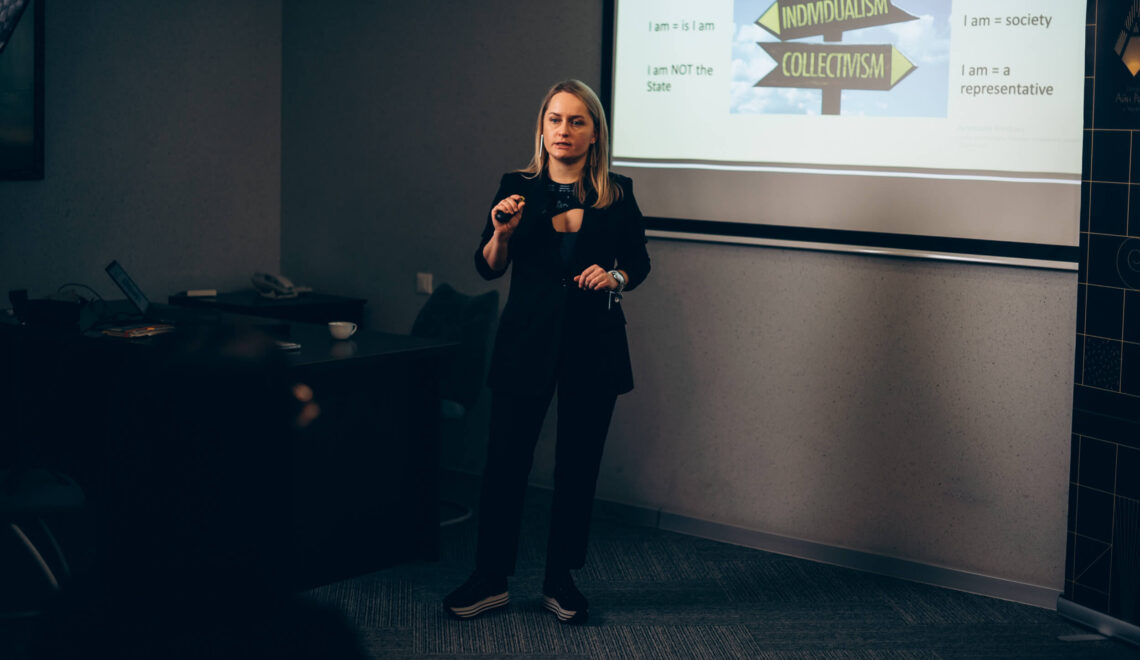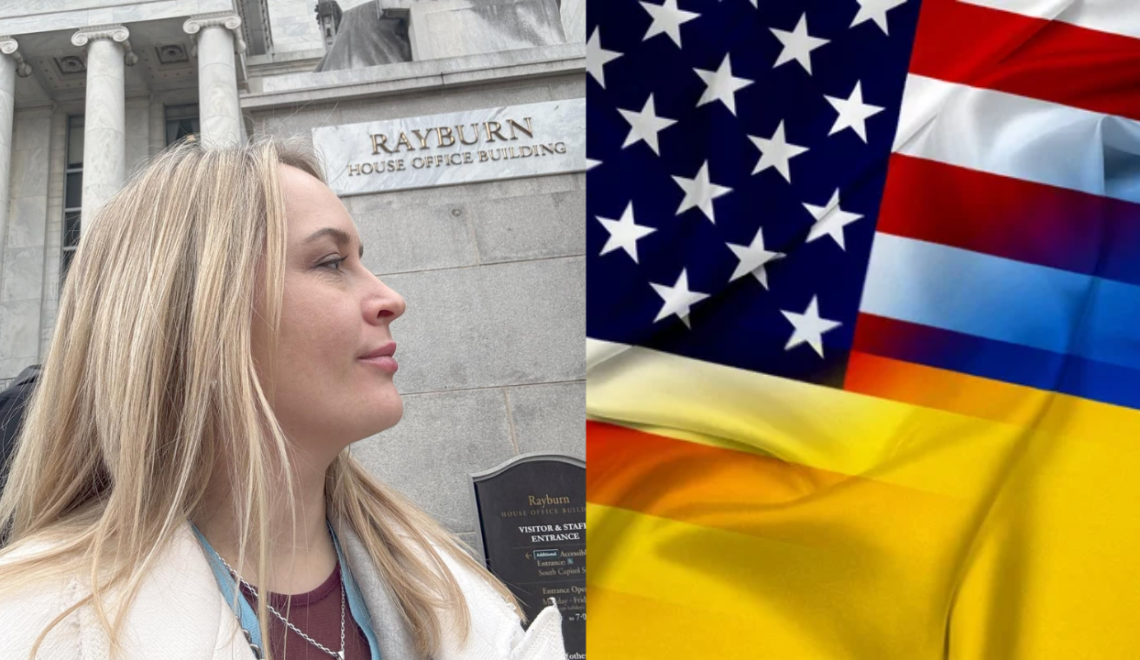
Yana Matviychuk is a Ukrainian entrepreneur and volunteer. Yana Matviychuk frequently delivers lectures at the Ayn Rand Institute Ukraine owing to her dynamic engagement in revitalizing Ukraine’s economic landscape.

Ayn Rand, known as a philosopher and writer, championed philosophical concepts in her literary works and essays that vehemently opposed collectivism, socialism, and any suppression of individual freedoms and rights. Interestingly, her ideologies significantly shaped political philosophy and discourse. Particularly among advocates of libertarianism and capitalism in the United States.
Embracing the values and perspectives of Ayn Rand, Yana Matviychuk actively advocates and advances her ideas within Ukraine. According to her, fostering a free-market economy and implementing deregulation measures could aid Ukraine in overcoming the economic crisis induced by Russia’s extensive invasion.

Yana Matviychuk about the main elements of the philosophy of objectivism. Ayn Rand Institute
- Individual rights
Individual rights are a crucial element of the philosophy of objectivism according to Ayn Rand. Rights to life, liberty property, and the pursuit of happiness of an individual are the main elements of this concept. In other words, individual rights have to be in the first place.
- Limited government
This element of the philosophy of objectivism means that authorities should have only one function – to protect rights according to objective rights.
Ayn Rand said: «The right is «a moral principle defining and sanctioning a man’s freedom of action in a social context».
Libertarianism and Ayn Rand’s philosophy
There are three principles of libertarianism:
- Self-ownership
Self-ownership is the principle of maximum individual autonomy that stems from the fundamental human right to self-governance. Additionally, it asserts that every individual possesses complete sovereignty over their body, life, and property, acquired through personal endeavors or voluntary transactions. What is more, this principle advocates for the elimination of social assistance programs, the implementation of solely voluntary military service, the abolishment of victimless crimes (such as drug use, prostitution, arms smuggling, and driving without a seat belt), the removal of antitrust regulations, the legalization of same-sex marriage, euthanasia, and the unrestricted carrying of firearms.
- Protection of property rights
Property ownership is regarded as an essential aspect of an individual’s identity, grounded in the principle of “non-aggression.” The belief is that taxes represent legalized theft, and taking money from the wealthy to redistribute it to the less affluent is seen as unjust. This belief is derived from the fundamental human right to manage and control one’s possessions.
In short, everyone has to have the property right that nobody can take away.
- Limited government
The primary perceived threat to individual freedom lies in the state, as per the “non-aggression” principle. This idea defines aggression as any forceful or deceitful intrusion into an individual’s sovereign domain. In addition, supporters of this principle advocate for reducing state control, emphasizing the non-interference of the state in the economy, and advocating for the cancellation or minimization of taxes. Moreover, they propose that the state should refrain from exerting control over businesses.
Learn more about the philosophy of Ayn Rand and the economics of objectivism in video:









